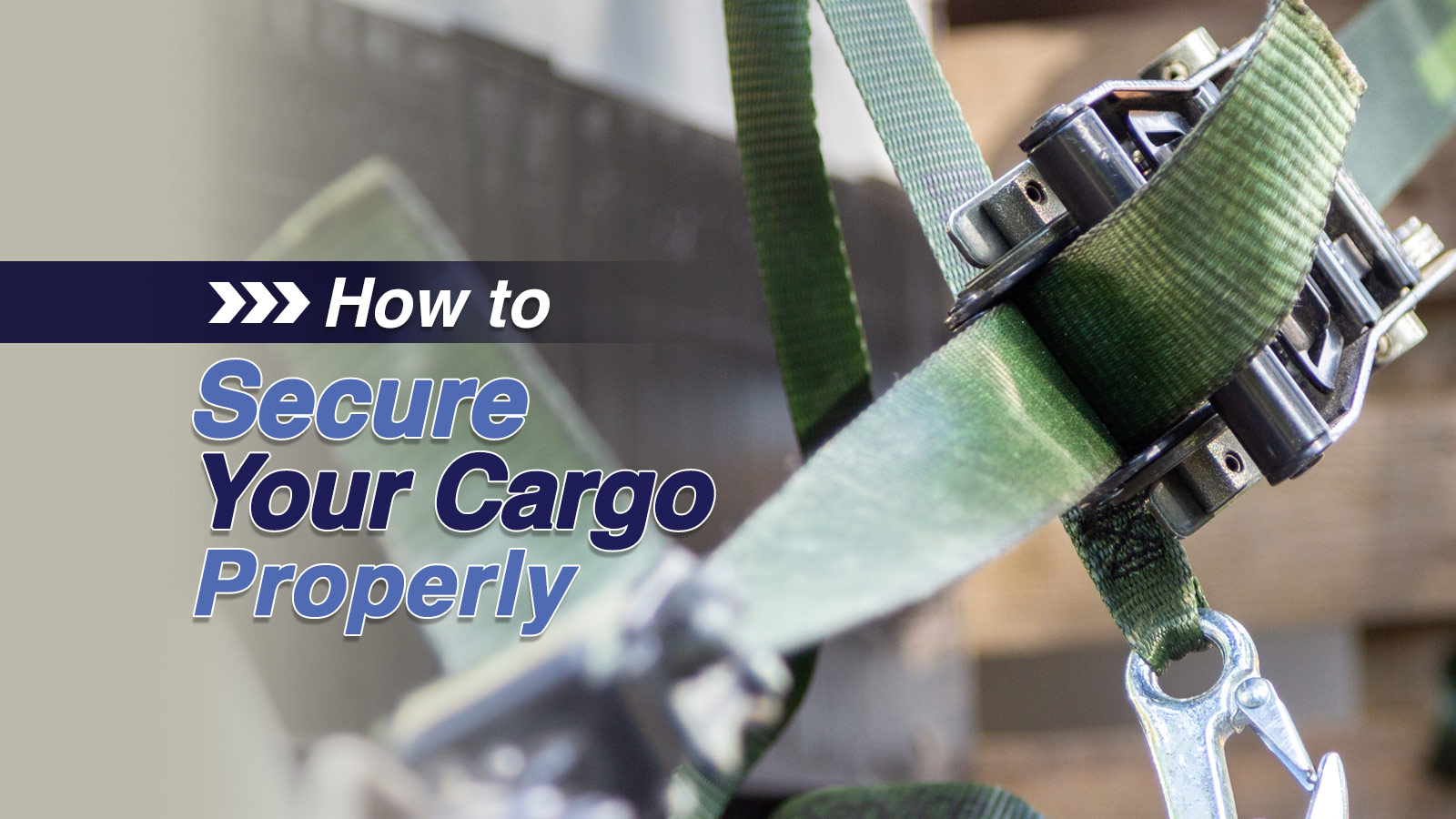A driver should always have safety on his mind while driving. This includes not only their safety and the safety of surrounding vehicles but also how to transport their cargo so that it stays undamaged. Improperly secured cargo presents a potential hazard, as the cargo may shift, causing the truck to roll over or crash, or break through the trailer’s front wall and fatally injure the driver. Accelerating and braking can create forces that may cause your load to shift. To avoid any potential accidents, here is some advice to help you properly secure your cargo using bars, straps, and a little physics!
Cargo Straps
To secure the load to the anchor points within the dry van and reefer trailers, use sturdy cargo straps. Heavy-duty ropes and ratchet straps are often used for this. Once you have successfully strapped down your load, fasten it firmly to make sure it is secure enough to hold your load tightly in place. Depending on the weight and size of the goods you are transporting, choose the appropriate type and size of straps or tie-downs. Different kinds of goods may require various approaches, such as chains, ratchet straps, or ropes, and anti-slip mats can also aid in cargo shift prevention. Make sure that the cargo is distributed evenly throughout the trailer or flatbed to avoid moving while it is being transported. To make the most of the available space, the cargo may need to be stacked and fastened in sections. There are usually designated anchor points on the flatbed or trailer of the truck where straps and tie-downs can be fastened. Check these anchor points to ensure they are in good condition and capable of withstanding the load’s force. We suggest you obtain 2-3 straps of your own, they can come in handy.
Keep in mind that one strap can contain up to 500 kg of load mass, so for heavier and bulkier loads, consider using metal bars that come in different variations. These bars can be used only in dry vans since they can damage the reefer:
Cargo Bars
Load Lock Bars
Load Lock Bars are most commonly used for securing cargo in the trailer. The ends of each bar have rubber foot pads that are either bolted or welded to them. The load lock bar’s rubber pads are an essential component because they enable both ends to be securely fastened to the vehicle’s walls.
Every time you use your cargo bar, it is crucial to inspect these parts because damage to them could cause slippage.
Jack Load Bars
Load Lock Bars and Jack Load Bars differ slightly from one another. Both bars rely on pressure to tie themselves to a vehicle’s sidewalls, while Jack Load Bars apply the pressure using a jack rather than just a release mechanism. This enables the user to attach the bar to the exterior walls more firmly.
E Track Load Bars
Making the most of the space in your truck is made possible with E Track Load Bars. They can be used to divide loads and avoid load shifts as standard load bars, or they can be utilized to build many layers and make the most of space that would otherwise be wasted. As such, E Track Load Bars are a flexible tool in the cargo control field.
Hoop Load Bars
Large boxes that are prone to load shifting during transit will be best secured using a hoop load bar. A Hoop Load Bar is similar to Cargo Bar or Load Bar, with the exception that it is fastened with substantial metal hoops. These hoops enable even better protection against load movement and expand the cargo bar’s covering area.
If you have fragile items in your load, use additional padding, cushioning, or dunnage to protect them. If you notice any issues, adjust and re-secure the load as necessary.
Remember to always check how the shipper handled the cargo, and if you’re not happy with how it was loaded and secured, you can ask them to re-stack and re-load it. It might take a bit more of your time, but proper load security is not only for the safety of your cargo but also for the safety of other road users. Failing to secure your load adequately could result in accidents, damage, and other consequences.
Following all of the above steps can minimize the risks associated with transporting cargo, and receivers will also be happy with you! For more information about this and other topics, call us at (630) 506-8869, and we’ll be glad to assist you.


Leave A Comment